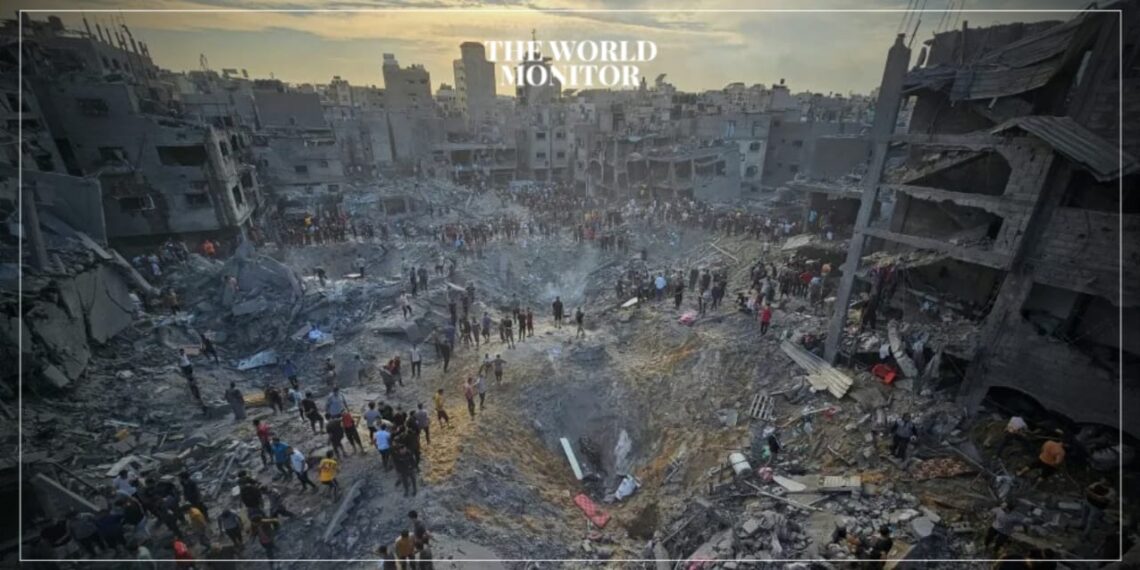In a series of overnight operations, the Israeli army conducted multiple raids in the occupied West Bank, leading to 77 casualties in nighttime attacks in Gaza, with Khan Younes emerging as the focal point of the conflict, reported Hamas’ health ministry.
Khan Younes, the primary city in the southern part of the Gaza Strip, witnessed a surge in violence between Thursday and Friday, January 19, resulting in 77 fatalities, as per Hamas’ health ministry. The landlocked region is grappling with a growing risk of disease spread, with the World Health Organization documenting a surge in cases of hepatitis A and jaundice. Simultaneously, the Israeli Defense Forces (IDF) carried out raids in the occupied West Bank, where the Palestinian Authority recorded six deaths since Wednesday.
On Friday, January 19, the Israeli army initiated a fierce bombardment in the southern Gaza Strip against the backdrop of escalating tensions between Israel and the United States over the prospective Palestinian state and the situation along the Yemeni coast. Witnesses reported gunfire and airstrikes in Khan Younes during the early hours of Friday, the main city where Israel alleges many leaders of the Palestinian Islamist movement Hamas are hiding.
Expressing its dismay, the Palestinian Red Crescent reported “intense artillery fire” in the vicinity. The al-Amal hospital, associated with Hamas’ health ministry, confirmed 77 casualties from the nighttime strike, highlighting Khan Younes as the current epicenter of the conflict. The Israeli army asserted reaching the “southernmost” sector of Gaza, signaling strategic progress in its territorial settlement efforts initiated from the far north of the Palestinian Territory.
In Gaza, where nearly 80% of the population has been displaced due to raids and fighting, the humanitarian crisis is reaching dire proportions.
Israeili Prime Minister Benjamin Netanyahu, on Thursday, January 18, declared Israel’s pursuit of “total victory,” emphasizing the destruction of terrorist leaders, dismantling Hamas’ operational and military capabilities, securing the return of hostages, and the demilitarization of Gaza. Netanyahu stated that victory would be a prolonged process spanning several months, and he insisted on Israel having security control over the entire territory west of the Jordan River, conflicting with the concept of Palestinian sovereignty.
US National Security Council spokesman John Kirby, responding to Netanyahu’s statements, remarked, “We obviously see things differently.” The United States, a key ally of Israel, reiterated the importance of creating and recognizing a viable Palestinian state for “real security.”
Throughout the night, the Israeli army conducted raids across various areas of the occupied West Bank, particularly in Tulkarem, where at least six deaths were recorded by the Palestinian Authority’s Ministry of Health since Wednesday.
In response to Netanyahu’s comments, a spokesperson for Palestinian President Mahmoud Abbas emphasized the necessity of an independent Palestinian state for regional security and stability, criticizing Israel’s aggressive policies.
The international community is growing increasingly concerned about the escalating conflict, with daily exchanges of fire on the Israeli-Lebanese border, heightened Houthi attacks on merchant ships in the Red Sea and the Gulf of A






